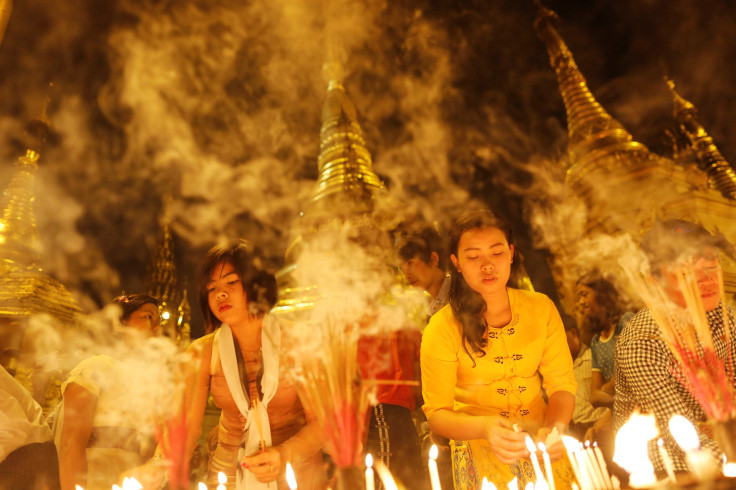Marriage Because Of Pregnancy? Myanmar Law Would Jail Men Up To 7 Years If They Don't Marry Pregnant Women

Legislators in Myanmar are hoping to pass a law that would send men to jail if they get a woman pregnant and don’t marry them afterward, according to a senior government official Wednesday. Those in violation of the potential bill could face up to seven-year behind bars.
The prospective legislation, aimed at strengthening women’s rights in the Southeast Asian country of roughly 53 million people, would reportedly be the first of its kind. It would additionally make gang rape a capital offense, according to Naw Tha Wah, director of the country’s social welfare department. Naw Tha Wah said the bill is in its final draft.
Myanmar men may face jail for not marrying pregnant women https://t.co/1GXPARQVUU
— AFP News Agency (@AFP) December 28, 2016
"We are now drafting a bill to protect women and prevent violence against them," Naw Tha Wah told Agence France-Presse. "Women can complain if they are bullied into not getting married after living together. We will give them protection under the law."
The bill is pending approval from a vote in Myanmar Parliament, but if passed, perpetrators could be jailed up to five years for declining to marry a woman after living with her, and seven years if doing so while she is pregnant.
Myanmar had a history of human rights abuses while being subjugated to military rule from 1962 until 2011. Its current government, headed by Nobel Prize winner Aung San Suu Kyi, was recently rewarded by President Barack Obama when he announced in September that the United States would lift its economic sanctions on Myanmar because of its progress on human rights.
Social reforms instilled by the current government included the allowance of international news websites and YouTube into the country. Before 2012, only government selected and privately funded newspapers were permitted to publish information.
Myanmar is widely regarded as a socially conservative country where women are treated as second-class citizens, which is accentuated by the fact that the Burmese language doesn’t have a word for female genitalia and women’s clothes are mandated to be washed separately from those of men because the lower half of female body is tabooed to be unclean.
The country's parliament passed a law in July 2015 preventing Burmese women from marrying any man who wasn't Buddhist without receiving prior consent from the government.
"It's very frustrating because the government says we are going to be a democracy...but this kind of law, which restricts rights of women goes against international norms and standards," Wai Wai Nu, an activist for the country's heavily persecuted Muslim minority group the Rohingya, told Al Jazeera at the time.
© Copyright IBTimes 2025. All rights reserved.






















